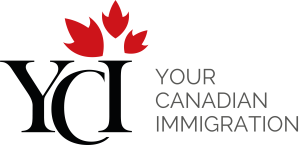New site under development
Who is a Permanent Resident
Permanent residents in Canada are individuals who have been granted the right to live, work, and study in the country indefinitely. They enjoy most of the same rights and privileges as Canadian citizens, including access to healthcare and social benefits. However, permanent residents are not allowed to vote or hold certain government positions that are exclusive to citizens.
Permanent Resident Card
A permanent resident card, also known as a PR card, is an official document issued by the Government of Canada to permanent residents of the country. It serves as proof of their status as a permanent resident in Canada. The PR card is typically valid for five years and must be renewed before it expires.
The card contains important information, such as the holder’s name, photograph, date of birth, and a unique identification number. It is a wallet-sized plastic card that can be easily carried and presented when required.
The PR card is crucial for permanent residents when re-entering Canada after traveling abroad. It serves as their proof of status and must be presented to immigration officers upon arrival at a Canadian port of entry. Failure to carry a valid PR card may result in delays or denial of entry.
It’s important for permanent residents to maintain their PR status by meeting residency requirements, which include residing in Canada for 730 days within a five-year period. Failure to meet these requirements may result in the loss of permanent resident status and the need to apply for reinstatement or citizenship.
PR Card renewal applications must be submitted from inside Canada.
Permanent Resident Travel Document
A permanent resident travel document (PRTD) is a document issued by the government of Canada to permanent residents present outside of Canada. This allows permanent residents to return to Canada where they do not have a valid PR card. It serves as a substitute for a permanent resident card (PR card) when a permanent resident is unable to obtain a PR card or when their PR card has expired or been lost/stolen.
To apply for a PRTD, permanent residents must meet certain eligibility requirements, such as: being a permanent resident of Canada, having valid proof of permanent residency, and not being under an effective removal order. The application process involves completing the appropriate forms, providing supporting documents, paying the required fees, and submitting the application to the Immigration, Refugees and Citizenship Canada (IRCC).
Once approved, the PRTD is typically valid for one entry to Canada and is usually valid for one year from the date of issuance. It allows permanent residents to travel back to Canada from abroad and is essential for those who do not possess a valid PR card. It is important to note that a PRTD does not guarantee re-entry into Canada, as border officials still have the authority to deny entry if they believe the person is inadmissible.
It is recommended for permanent residents to apply for a new PR card as soon as possible once they return to Canada with a PRTD, as the PR card is the preferred travel document for permanent residents.
PRTD applications must be submitted from outside of Canada.
Renouncing Permanent Resident Status
Renouncing Permanent Resident Status in Canada refers to the process of voluntarily giving up one’s permanent resident status in the country. Permanent resident status allows individuals to live and work in Canada indefinitely, with certain rights and responsibilities. However, there may be various reasons why someone would choose to renounce their permanent resident status, such as deciding to permanently move to another country or no longer wishing to maintain ties with Canada.
To renounce permanent resident status in Canada, individuals need to submit an application to Immigration, Refugees and Citizenship Canada (IRCC). The application process typically involves completing specific forms, providing supporting documents, paying relevant fees, and attending an interview, if required. It is important to note that renouncing permanent resident status can have significant implications, including the loss of certain rights and privileges associated with permanent residency. Once the renouncement application is approved:
Renouncements are irreversible. Please weigh in all the pros and cons before applying for renouncing PR status.
